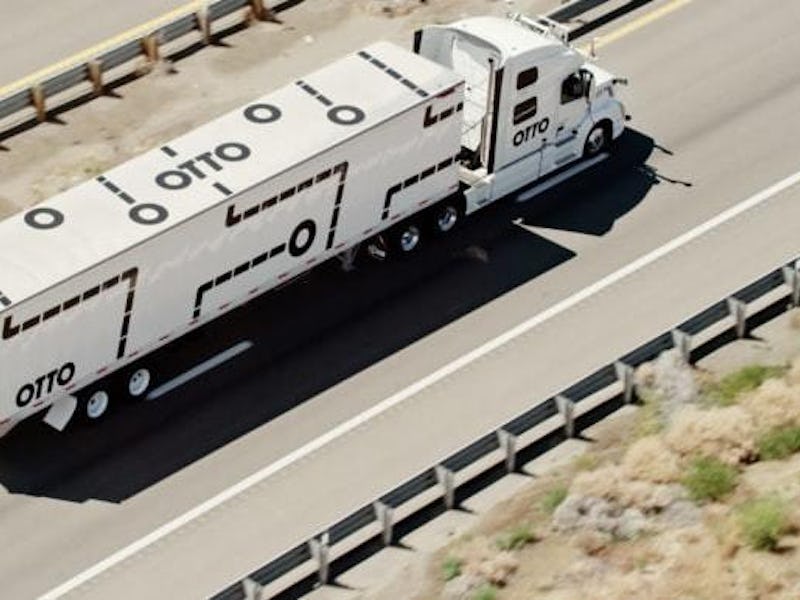Uber has launched a website for a service called Uber Freight. Little has been revealed about the company’s expansion from ride-hailing, but if the announcements it’s made over the last year are any indicator, chances are good that Uber Freight is meant to prepare the world for autonomous delivery trucks.
Uber acquired a startup called Otto, which planned to bring the first self-driving trucks to market, in August. Since then the company has used its trucks to deliver 50,000 cans of beer and hundreds of Christmas trees in San Francisco.
This new service won’t use those trucks, at least not at the beginning. Instead it will function much like Uber’s existing platform: Some people will sign up to drive items across the country, and others will join so they can send packages without having to sign a contract with established shipping companies. The service will likely bring “surge pricing” to trucking, too.
Uber Freight could also help Otto’s trucks by using data gathered from drivers on the platform. This would allow the self-driving vehicles to learn from experienced people while regulators figure out how to govern autonomous trucks and the technology catches up to all of the promises made by its creators. Why put off entering a whole new market — shipping and commuting don’t tend to overlap — when the company could just use human drivers until its semi-trucks are ready?
It turns out that Otto had similar plans. Business Insider reported in October that the startup eventually wanted to introduce a platform like Uber’s. The acquisition didn’t just give Otto access to more resources or help Uber work on self-driving vehicles; it let the companies work together instead of trying to compete with each other. (I suspect the more business-inclined would call this “synergy.”)
Uber Freight’s launch coincides with growing interest in trucking from many tech companies. Nikola Motor Company wants to use tech to make trucking more environmentally friendly and appealing to millennials; Tesla’s working on self-driving trucks; the list could go on.
But it will be interesting to see where Uber lands on the driver problem. Nikola has been clear in its commitment to making good drivers happy, while Tesla CEO Elon Musk has said that automating jobs like truck-driving could lead to universal basic income. Uber Freight lands in the middle — it needs human drivers now, but it’s likely to switch to autonomous trucks as soon as mechanically possible.
Uber told Inverse it’s going to wait until the new year to elaborate on how the system works. “We don’t have any new information to share at the moment,” a spokesperson said, “but hope to in the new year so please do stay in touch.” It looks like the future of trucking — or at least one potential future — is going to take a little while longer to make its debut.
